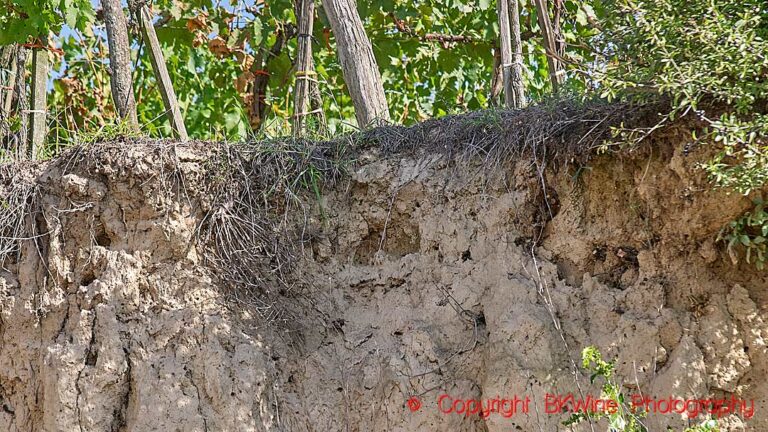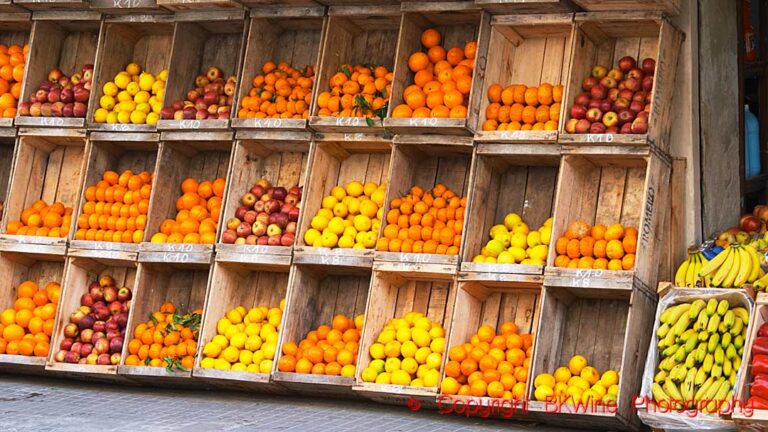

 The wine world’s vague and hard-to-explain words
The wine world’s vague and hard-to-explain words
There are difficult words in the world of wine. It may not be obvious to know exactly what is acetaldehyde, tangential filter or sexual confusion. But these words have a very well-defined meaning. Just look them up in a book.
But there are also words that people use when they talk about wine that are vague, difficult to explain and with different meanings for different people.
Fine wines, quality wines, authentic wines, honest wines, natural wines, balance, typicity, terroir wines… The list is long with words we use that reflect our own subjectivity. We know ourselves (hopefully) exactly what we mean. But it is not obvious to everyone else.
I am not primarily thinking of tasting notes, although these can be a tough task to understand. Take minerality. This is a trendy word, quite recently invented, that you should perhaps best avoid in a wine tasting if you do not have a good explanation to give if someone asks you what exactly you mean. There is no generally accepted definition of what minerality is in taste. Perhaps you think of stony, salty, fresh, vibrant or something else. Of course, it is a good start to know what you mean. If anyone asks.
Honest wines, authentic wines and genuine wines are also currently popular words that have emerged in the wake of natural wines. Using such words is more making a statement, making wine politics. The people who use them probably think they are self-explanatory. But not the rest of us.
What about fine wines then? Is it the same as quality wine or is it a little bit better? Exclusive wines maybe? Quality wine is also a tricky word to explain because quality does not mean the same for everyone.
There is one exception to this confusing terminology. “Organic wine”, contrary to what some believe, is simple and clear-cut. The rules are clearly defined and easy to understand. And they are identical and common throughout the EU.
Sustainability, on the other hand, is vague, but positively charged. Which winemaker today dares to say that they do not work sustainably? Biodynamic is also to some extent vague and open to different interpretations, although Demeter considers itself to have an interpretative prerogative. Something that Biodivin probably doesn’t agree with.
Typicity is seemingly straightforward, though rarely obvious. You can taste that the wine comes from a certain place or region. But which character is “typical” for a region can lead to endless debate.
“Terroir wine”, on the other hand, is vague. Does this mean that you can tell which special terroir (“place”) the wine comes from (i.e. the same as typicity)? Or does it mean that the terroir puts its mark on the wine more than the grape does? I believe it is the latter. So, if you don’t recognize origin or grape, then you just say it is a terroir wine. It is vague but it can never be wrong.
And that leads us on to the concept of “natural wine”, which has no generally accepted definition. Many advocates of it believe that these wines give the most genuine expression of origin and terroir and grape style. I myself often find it difficult to recognize any typicity of terroir or for that matter, a grape, in these wines, although they can be good.
What you can be sure of is that when you travel in a wine region you will get a completely different feeling for how the wines taste and how the origin is reflected in the taste of the wines.
What you can also be sure of is that once you have been in a wine region, all wines from that region will taste different in the future. The landscape, the people, the experiences remain in the memory and will provide a much greater wine experience the next time you taste a wine from the places where you have been.
So, plan a wine tour in 2020, it is a good investment that will radically enhance your wine experience in the future.
Soon the new year will begin and it will be an excellent wine year. 2020, say it in French, it is pronounced “vin-vin”.
Happy festive season,
Britt & Per
PS: Recommend to your friends to read the Brief!
What’s on at BKWine Tours
- Chile and Argentina, January 20 – February 2, 2020
- South Africa, February 15-23, 2020
- New Zealand, March 9-24, 2020
- Bordeaux, April 15-19, 2020
- Champagne, September 16-20, 2020
- Bordeaux, September 30 – October 4, 2020
- South America, Chile and Argentina, January 18-31, 2021
- New Zealand, February 18 – March 5, 2021
- South Africa, March 17–26, 2021
For more information please contact us on email or on phone (we’re on French time), or go to our wine travel site on www.bkwinetours.com!
We also make custom designed wine tours – on-demand tours for you and a group of friends, for your company (maybe to scout new winegrowers?), for a special event… We can combine winery visits and wine touring with other activities: gastronomic workshops, visit to an oyster farm, truffles hunting, cheese making, and more. More info on the custom designed and bespoke BKWine wine tours and travel here!
Read our book(s)
We have written several wine books, nine at the last count. One of them has been translated to English; the others are (so far) only available in Swedish. This is the one that is available in English: Biodynamic, Organic and Natural Winemaking, Sustainable Viticulture and Viniculture
All our books are on wine, but on different subjects: wines of the Languedoc, wine growing and wine making, the wines of France, Tuscany, Bordeaux, Piedmont, Burgundy, Champagne. Several have won prestigeous prizes and awards. Read more on our wine books.
[box type=”alert” size=”large” style=”rounded” border=”full”]This is just the introduction to the latest issue of the Brief. Subscribe to the BKWine Brief and you will get the whole edition in your mailbox next month.[/box]









